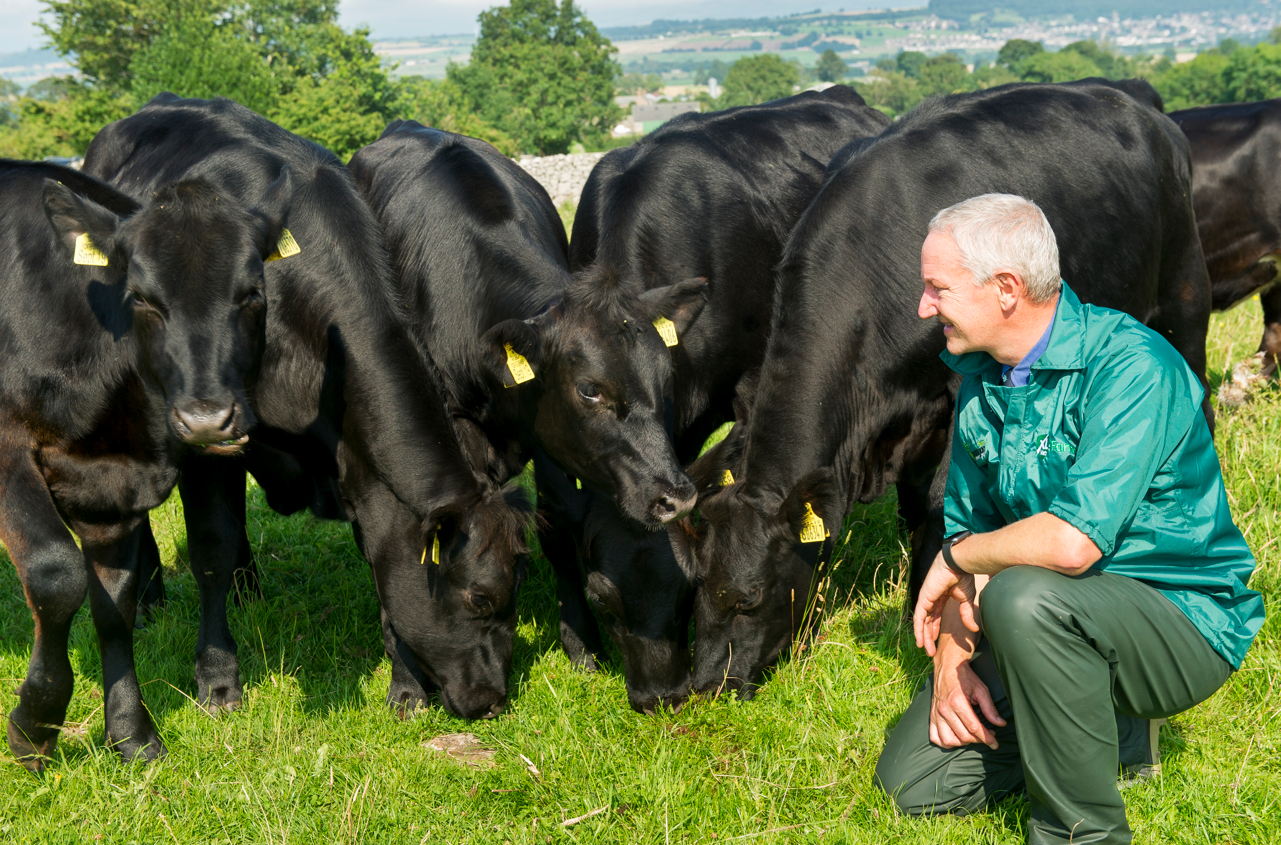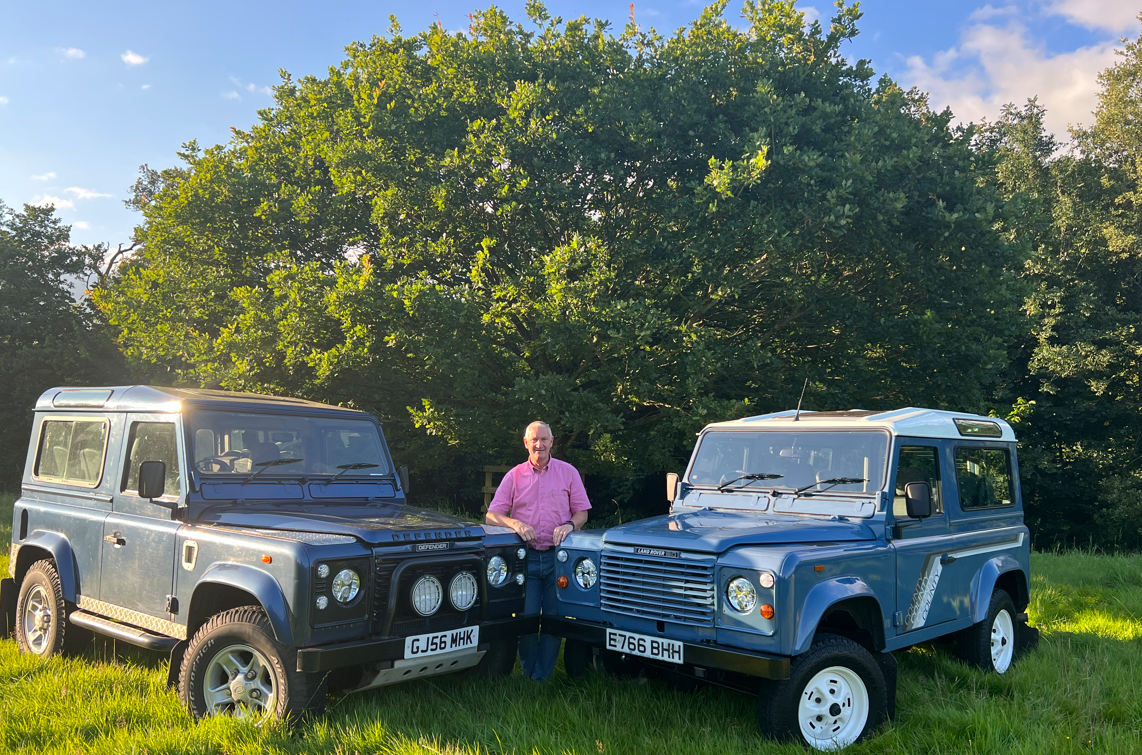Meet David Black, Managing Director of Paragon Veterinary Group & VetSalus, & Vet Sustain Director
David Black
I am Managing Director (MD) of Paragon, a three-centre, fiercely independent, mixed rural veterinary practice in Cumbria; MD of VetSalus, a global network of veterinary specialists who can provide expertise in all aspects of ‘One Health’ - especially animal production and sustainable farming - and who are engaging with global food strategy. Most recently I am proud to have supported the development of Vet Sustain as a founding Director and Treasurer.
From a clinical perspective, I was drawn through my early career in the direction of farm work with my main clinical interest becoming dairy practice and cattle reproduction. This has developed into research and development in advanced breeding technologies in cattle. My various other roles involve supporting and mentoring colleagues as they develop their careers.

What does a typical day look like for you?
Part of the interest and excitement of a veterinary career is that usually each day is different. As my career has developed into more of a management and leadership role, I do less clinical work but still have long busy days! I will often be on video calls early in the morning, or late at night working with colleagues in different time zones, and I must admit I am more of an owl than a lark! A lot of my time is spent with people, either virtually, or face-to-face supporting them in their clinical, business, technical or leadership roles. I see innovation as key to the future of animal health so also get deeply involved with research and development at Paragon and beyond. Most recently my passion for veterinary sustainability has opened new doors and conversations and I enjoy presenting and discussing this subject, often internationally.
What is your favourite part of the job?
The great thing about being a vet is that there is no single favourite part...there are so many varied and exciting aspects to what we do.
I love being part of a like-minded team who are committed to being the best they can be, whether as a vet, nurse, technician or support; this reaches beyond Paragon to XLVets, VetSalus, Vet Sustain and into other areas I am involved with.
I enjoy the daily challenges of running an independent business, of improving our efficiencies and effectiveness and of making Paragon a sustainable business that people want to work for. Clinical success still excites and rewards me, and more recently I have come to appreciate good quality research, especially that which can be applied to make an industry difference and gives us an evidence base to work from.
But in the end of the day, all great businesses are built on fantastic people so I get a great kick out of seeing colleagues develop and thrive in their chosen roles
What is the most challenging part of your job?
I don't know if anyone ever gets over the ups and downs of veterinary life - the successes can be very high, but the lows can be awful. Even now I feel these keenly, often on behalf of young colleagues who are striving so hard. And of course, communication in any business is a daily challenge, making sure that everyone who needs to know something receives the correct, clear information; this often requires an understanding of that individual or group, and tailoring the delivery content and style to achieve best effect.
Do you have any tips for achieving a good work-life balance?
I am not the best to answer this question! I have an amazingly supportive and understanding wife and family who have allowed me to indulge my passion for veterinary life and business. For me, it has been a vocation with no distinct line between work and life, but having said that we have always sought good-quality family time and great activity holidays - a sort of "work hard, play hard" approach! For me, having a really good team of people means that time away is much more relaxing now as I know the businesses are in safe hands! At Paragon we have started developing an "emergency only" WhatsApp group so that when colleagues are off work, they can truly switch off from the background noise of social media and communications with the assurance that there is a single point of contact should a really urgent and important issue arise. Sue and I enjoy Scottish Reeling evening classes through the winter months - a bit of light exercise and the mental challenge of remembering some complex dance moves! I have also benefited since COVID from a group of friends meeting weekly to undertake projects - the latest has been the restoration of an ancient Landrover - we only meet for a couple of hours a week, but it is a discipline and certainly helps take my mind off veterinary matters for a few hours!

How do veterinary professionals currently help to drive sustainability?
Since getting involved with Vet Sustain, I have become every clearer in my thinking about this. I realise that we can have an impact in nearly everything we do - as individuals, as vet-led businesses and as advocates. At Paragon we have really worked hard with our Green Group and Champions and all those seemingly small steps seem to be adding together into meaningful change. As practitioners, we work at the very intersection of human, animal and environmental health and as highly trusted professionals we can be advocates for sustainability - we already are when we are looking at optimising health and production of livestock, or selecting and breeding genetic traits that promote high health and welfare. We need to reframe the discussion we have with our clients and inform ourselves so that we can advocate for change and to support, particularly farmers as they continue in their journey of sustainability and regeneration
What do you feel are the major opportunities to drive sustainability in the veterinary sector?
From a farm vet point of view, every production system can be more sustainable. We have a role to provide evidence-based advice on how to improve the health and wellbeing of animals and by doing so we need less therapeutic medicine and in particular fewer antibiotics. Precision agriculture to me is about understanding the genome, the microbiome, the interactions between animals and their environment, and utilising data - ideally in real-time. Then using the latest technologies to ensure the efficiencies are maximised and the impact on the environment minimised. We have so much to offer as vets, and I am inspired to keep learning
What are your top tips for veterinary professionals wishing to take the first steps to drive sustainability in their roles?
I suspect, like us, most are already doing a lot, but we haven't really framed our work in sustainability terms. So we need to define what it means to us, learn more from each other, be open to ideas and suggestions and think about sustainability from every angle. We have introduced sustainability as a specific agenda point into our management meetings and that in itself means we are discussing it more and doing more about it. And part of the discussion has to be around the sustainability of our profession itself; so recruitment, development and retention of staff within our businesses. But my two bits of key advice are a) inform yourself so that you can have meaningful, non-combative, constructive discussion backed by facts with whoever you are engaging with, and b) don't be over-awed by the task at hand - continue with small steps and changes, and you will soon see a difference
If you could wave a magic wand and make one improvement to drive the sustainability impact of the veterinary profession, what would it be?
I would banish the binary debate about meat versus vegetables, especially for those in the livestock sector. In developed countries, we are more aware of the good evidence that we should eat less red meat, and I fully subscribe to the “less and better” philosophy, but the growing middle classes in developing countries aspire to eat more meat. There are many areas where livestock production is the only way of producing protein of any quality so let's accept that. Everyone has a right to choose their own diet, and we are on a journey of change that will not happen overnight. So let's use all the tools available to us, our trusted role within "One Health" and do all we can to promote healthy animals who have a life worth living. That is what we as vets have signed up to I believe.